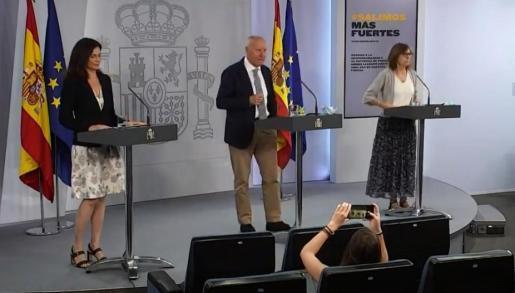The National Seroprevalence Study in Spain has found that 5.2% of the population has coronavirus antibodies according to the Ministry of Health and the Carlos III Health Institute.
Faustino Blanco, Secretary General of the Ministry of Health, Dr Marina Pollán, Director of the National Centre for Epidemiology and Dr Raquel Yotti, Director of the Carlos III Health Institute presented the findings.
Dr Pollán also revealed the results of the third round of the study.
“We have consolidated the first round and advanced round two. We didn't find any gender differences and it looks like the age differences faded in the last round. The percentage of people with antibodies is higher in those who have had symptoms, especially those who reported loss of smell and taste.
Dr Raquel Yotti explained that the study has unique characteristics.
"It is unique worldwide and has been recognised as such."
She went on to highlight the strengths of the study, namely, population representation; high participation rate and adherence to the study; the calculation of antibodies in extreme age ranges; the simultaneous use of two types of tests, the rapid test and the laboratory test which provides more accurate measurements and finally, access to epidemiological information which she said will be very useful in the coming months.
“Following people over time and adhering to the study, enabled us to give seroconversion rates. 0.9% of people who were negative in the first round became positive in the second and 0.7% of those who were negative in round two became positive in round three,” said Dr Pollán. “Bearing in mind that antibodies take a long time to appear, we see the effect that the lockdown probably had. There are people who don’t show antibodies in one round but do in the next. 7% went from positive in the first round to negative in the second, and 14% between the first and third round, but not having antibodies, or not being able to detect them, does not mean that these people are not protected,” she added.


No comments
To be able to write a comment, you have to be registered and logged in
Currently there are no comments.